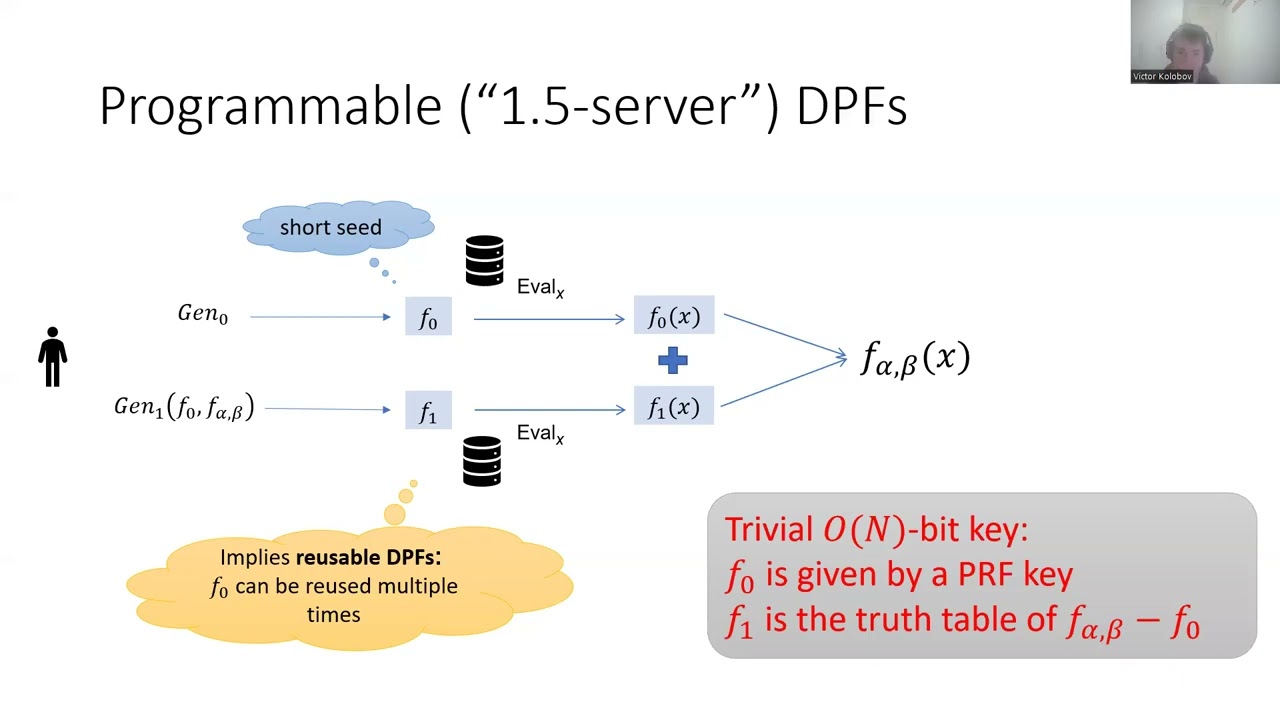Welcome to the resource topic for 2022/1060
Title:
Programmable Distributed Point Functions
Authors: Elette Boyle, Niv Gilboa, Yuval Ishai, Victor I. Kolobov
Abstract:A distributed point function (DPF) is a cryptographic primitive that enables compressed additive sharing of a secret unit vector across two or more parties. Despite growing ubiquity within applications and notable research efforts, the best 2-party DPF construction to date remains the tree-based construction from (Boyle et al, CCS’16), with no significantly new approaches since.
We present a new framework for 2-party DPF construction, which applies in the setting of feasible (polynomial-size) domains. This captures in particular all DPF applications in which the keys are expanded to the full domain. Our approach is motivated by a strengthened notion we put forth, of programmable DPF (PDPF): in which a short, input-independent “offline” key can be reused for sharing many point functions.
- PDPF from OWF: We construct a PDPF for feasible domains from the minimal assumption that one-way functions exist, where the second “online” key size is polylogarithmic in the domain size N.
Our approach offers multiple new efficiency features and applications:
-
Privately puncturable PRFs: Our PDPF gives the first OWF-based privately puncturable PRFs (for feasible domains) with sublinear keys.
-
O(1)-round distributed DPF Gen: We obtain a (standard) DPF with polylog-size keys that admits an analog of Doerner-shelat (CCS’17) distributed key generation, requiring only O(1) rounds (versus \log N).
-
PCG with 1 short key: Compressing useful correlations for secure computation, where one key is of minimal size. This provides up to exponential communication savings in some application scenarios.
ePrint: https://eprint.iacr.org/2022/1060
Talk: https://www.youtube.com/watch?v=dKqapr-VBmk
See all topics related to this paper.
Feel free to post resources that are related to this paper below.
Example resources include: implementations, explanation materials, talks, slides, links to previous discussions on other websites.
For more information, see the rules for Resource Topics .
